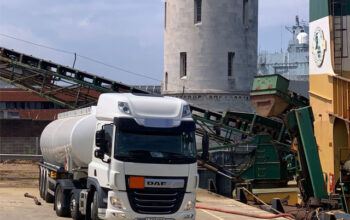This write-up examines exactly how the atmosphere impacts and also develops conditions for either the success or failing of business organizations and just how it operates to demand efficient critical reasoning for decision-makers if businesses are to endure and also prosper.
Take the classic example of Mark & Spencer PLC, which began in 1894 as a single high road store had by two males, marketing all items claimed to be setting you back no greater than a cent to the consumer. Throughout the years it dominated the retail sector with branches in prime areas all over the UK, and in abroad regions, totalling greater than 885 stores. Not only did Marks & Spencer evolve into the huge firm which it is today by checking out the modifications in the atmosphere well, as well as fulfilling the growing demands of increasingly more wealthy customers, it also influenced the buying practices of its customers.
The business company is not a faceless entity; at best, it can be a symbol of social and also economic progress, and also at worst ended up being beat by its failure to check out the environment, Woolworths and MFI being two current instances of such failing.
Just how the setting influence on the lot of money of the business company is nowhere extra evident than in the collapse of lots of company ventures consisting of banks (e.g.banks) in the current globally financial slump. Even starker is the effect of continuing bad climate either in the form of floods or snow on the stability of an entire variety of firms in the UK. Had actually the atmosphere stood for by the UK federal government not supplied a lifeline to a few of the major banks in the form of taxpayer aids, or buy-outs, they would not have made it through. Various political beliefs at different times impact the business enterprise in different methods. The collapse of communism and also the breaking down of the Berlin wall in 1989, paired with the Net phenomenon resulted in the abolition of regulations preventing international communication as well as industrialisation.

Since then there has been a wide variety of global mergers, procurements as well as partnerships which saw global corporations (TNCs) expand in size and economic power as never ever seen before. Denning (1993) has determined the interaction between ownership advantage (OA) brought by the TNC as well as the area advantage (LA) of the countries where TNCs seek to spend. Researchera determined synergies looked for by TNCs in international direct financial investment (FDI) as being motivated by methods for market seeking (MA), performance looking for (ES), and knowledge seeking (KS) specifically, depending upon their reading of the business setting.
Before going any deeper, it is necessary to take stock of what is suggested by the business firm, and also what its objectives are, and proceed to analyse the procedure as well as results of this fast globalisation. A business firm is a legal entity. Unlike a sole trader, or collaboration, it is called for to be included with rules and objectives that are recorded. It may be capitalised with loanings or by shareholder contributions. While the shareholders own the business as well as have insurance claims to sharing the revenues, it might be managed day-to-day by paid staff members. Learn more tips on business and finance from Page Kirk accountants in this link.
The goal of the company is ‘to maximise its worth to its shareholders’ (Van Horne, 1974). Historically, ‘maximisation of earnings is considered as the proper purpose of the company, but it is not as inclusive a goal as that of increasing shareholder wealth’ (op. cit.). There are problems also in this concept where ‘increasing market price per share’ is preferred by some to ‘maximisation of earnings per share’ (op. cit.).
A business firm presently in the news is Blacks Leisure, which got on the brink of bankruptcy, when the present damaging climate condition enhanced its fortunes by offering a market for its thermal wear items. Currently it is intending to broaden further. At the same time the unfavorable economic atmosphere has encouraged Poundland supplying cheap goods to fill the void left by Woolworth’s death. The British salt manufacturing company Ineos Enterprises selected to terminate a 12, 000 heap shipment of industrial salt assured to Germany, drawing away the stock to local authorities in the UK in dire requirement of materials to grit roadways covered by snow. It is a good example of the atmosphere affecting choice manufacturers of personal companies to act in a socially accountable way. This upholds Van Horne’s (1974) assertion that even at the threat of not increasing investor wide range in the short term, management of business firms ought not to neglect the requirement for ‘social duty’ which brings long-term benefits although perhaps not quickly apparent.
As pertaining to firm, social responsibility issues such points as safeguarding the consumer, paying fair salaries to staff members, preserving fair hiring methods, supporting education, and becoming proactively involved in environmental issues like tidy air as well as water … Nevertheless, the requirements for social duty are not clearly defined, making formulation of a consistent objective feature hard’ (op. cit.).
It is now normally understood that a business does not, and can not operate in a vacuum cleaner. It has to respond to events occurring outside its factory and workplace wall surfaces. The very initial problem needs to be a close understanding of rivals’ staminas as well as weak points vis-a-vis its product or services. Additionally, many experts require recognition of the atmosphere in terms of political, social, economic as well as technological elements which impinge on the business firm.





